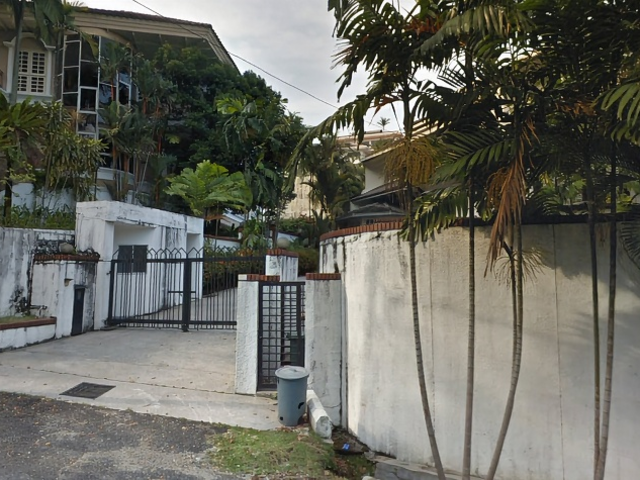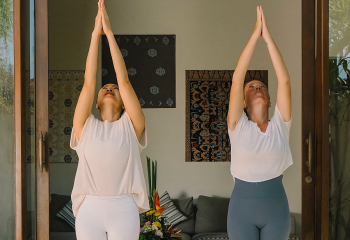More About Benzodiazepines Rehabs
Benzodiazepine Addiction Rehabs
Benzodiazepines are depressant drugs that cause hypnosis and sedation by depressing the central nervous system (CNS). They’re commonly prescribed for conditions like anxiety, insomnia, seizure disorders, and muscular disorders. Their sedative effects can help reduce anxiety and promote sleep. Examples of benzodiazepines, or “benzos,” include Xanax, diazepam, clonazepam (Klonopin), lorazepam (Ativan), and temazepam.
Benzos typically aren’t designed for long-term use, since they’re highly addictive. They’re often meant as a short-term solution to conditions like insomnia and anxiety or as a pre-procedure sedative.
If you continue taking benzodiazepines, you’ll build a tolerance to their effects and require higher doses. Higher doses and prolonged use can lead to dependence and addiction.
Treatment for benzodiazepine addiction can help you detox safely and address the core causes of addiction.
Signs and Long-Term Effects of Benzodiazepine Use
When used as prescribed, taking benzos often has few or no visible ill effects. Taking it as prescribed also prevents addiction and dependence. But improper benzo use can result in a slew of unwanted long-term effects.
Signs someone might be taking higher doses than prescribed include:
- Agitation
- Amnesia
- Extreme sleepiness
- Nightmares
- Bizarre behaviors
- Secretive about their behaviors and whereabouts
- Sudden or surprising financial troubles
Physicians generally prescribe benzodiazepines at the lowest dose and for the shortest length of time. When taken for too long, you can become emotionally and physically dependent on benzos. Long-term effects include:
- Increased tolerance; you’ll need to take more and more to get the same effects
- Memory loss
- Personality changes
- Weight gain
- Sleeping struggles
- Addiction
Effects of Benzodiazepine Use During Pregnancy
Benzodiazepines may have risks for someone who is pregnant or breastfeeding. Some of the benzodiazepines are categorized as a pregnancy Category D, meaning there are known fetal risks for someone who is pregnant and taking benzodiazepines.(7)
Benzodiazepines cross the placenta and may lead to the development of dependence and consequent withdrawal symptoms in the fetus. Some benzodiazepines (diazepam and chlordiazepoxide) may increase the risk of congenital malformations in the fetus.(7, 19) Benzodiazepines are excreted in breast milk and are usually contraindicated in breastfeeding mothers.(19)
However, when the benefits to the pregnant person outweigh the risks, benzodiazepines may be continued under the care of a doctor, particularly if a pregnant person is taking them to manage seizures.(7)
Other benzodiazepines are classified as pregnancy Category X drugs (flurazepam and temazepam) and produce effects such as neonatal lethargy and abnormalities in skeletal development.(7)
A recent study on benzodiazepine use during pregnancy associated benzos with:(11)
- Increased likelihood of preterm birth.
- Somewhat lower gestational age at delivery.
- Marginally lower birth weight.
- Admission to the neonatal intensive care unit.
- Respiratory stress syndrome in the infant.
Benzodiazepine Withdrawal
Benzodiazepine withdrawal symptoms occur after a person has developed a physiological dependence, which can happen when people stop using benzos after regularly using them for several weeks or months.
Benzodiazepine dependence can occur even at therapeutic doses but is more likely to happen sooner when higher-potency benzos are taken at higher doses. The severity and duration of withdrawal symptoms are influenced by several factors, such as the type of benzodiazepine used, the dose taken, the duration of benzo use, individual factors (a person’s biology and health), and other substances used.(1)
Benzodiazepine withdrawal can be dangerous, and people can benefit from talking with a doctor before they quit using benzodiazepines. A person at risk of severe withdrawal will likely require medical supervision or oversight to ensure their safety.(12)
There are medications that may be helpful in managing benzodiazepine withdrawal and techniques used to taper someone off benzos. This is generally evaluated on a case-by-case basis.(12, 13) Cognitive and behavioral techniques may also be suggested to help a person through benzo withdrawal and recovery.(12)
Common benzodiazepine-related withdrawal symptoms include:(10)
- Headache
- Increased sweating
- Increased heart rate (i.e., pulse greater than 100 beats per minute)
- Increased respiratory rate
- Increased body temperature
- Hand tremor
- Transient visual, auditory, or tactile hallucinations
- Nausea or vomiting
- Anxiety
- Insomnia
- Seizures
How Are Benzodiazepines Misused?
Benzos are typically found in the form of pills or capsules, and most people take benzodiazepines orally.(1) They can be misused by those with a prescription (or multiple prescriptions) in the following ways:(2, 3)
- Taking them at higher doses than prescribed
- After being purchased on the street.
- Taken intranasally (commonly referred to as “snorting”) by crushing the pills.
Are Benzodiazepines Addictive?
There is potential for benzodiazepine addiction and dependence, and with regular use, a person may still develop a physical dependence on benzos even when taken as directed by a doctor.(1) This can also happen for people who misuse benzos, particularly if they are taken in high doses.(1) When someone is physically dependent on benzos, they experience withdrawal symptoms if they stop taking benzos or significantly reduce the amount they are taking. People may continue to use benzos to avoid withdrawal symptoms.(1)
People who misuse benzodiazepines often misuse other substances like cocaine, heroin, prescription opioids, or alcohol.(2)
Signs of Benzodiazepine Addiction
The 5th edition of the Diagnostic and Statistical Manual of Mental Disorders (DSM-5) is used by medical professionals to guide the diagnosis of mental health issues, including substance use disorders.10 In the DSM-5, benzodiazepine addiction is classified as “Sedative, Hypnotic, or Anxiolytic Use Disorder.” Diagnostic criteria include:(10)
- Taking sedatives in larger quantities or for a longer duration than intended.
- Having a strong desire to reduce or control sedative use, but efforts to do so are unsuccessful.
- Spending a lot of time trying to obtain, use, or recover from the effects of sedatives.
- Craving to use sedatives.
- Failing to meet major role obligations and responsibilities at home, work, or school because of sedative use.
- Continuing to use sedatives even though doing so results in interpersonal or social problems.
- Giving up or reducing important social, recreational, or occupational activities because of sedative use.
- Using sedatives in dangerous situations, such as when driving or operating machinery.
- Continuing to use sedatives even though there are recurrent physical or psychological problems caused or made worse by sedative use.
- Developing a tolerance to sedatives (needing a higher dosage of sedatives to achieve its effects or diminished effects when continuing to use the same dose of sedatives).
- Experiencing symptoms of sedative withdrawal or needing to take sedatives or a similar substance to avoid withdrawal symptoms.
Like other substance use disorders, sedative, hypnotic, or anxiolytic use disorder is diagnosed on a continuum of severity. If someone is experiencing 2 to 3 of the above criteria, they would meet diagnostic criteria for a mild substance use disorder; 4 to 5 would be a moderate substance use disorder; 6 or more would be classified as a severe substance use disorder.(10)
Signs of a Benzodiazepine Overdose
As a central nervous system depressant, ingesting a high amount of benzos can dangerously slow your breathing and heart rate. Signs of an overdose include coma, slurred speech, shallow breathing, and death.
Call your local emergency number or 911 immediately if you suspect an overdose. If you are qualified, administer CPR. Use Naloxone (Narcan) if available.
Do Rehabs Treat Benzodiazepine Addiction?
Yes, most rehabs treat addictions to various types of benzodiazepines. Many rehabs also treat co-occurring mental health conditions, like anxiety and depression. You can find benzodiazepine treatment in many levels of care, including:
- Outpatient, where you meet once or twice a week with others in treatment and your care provider.
- Intensive outpatient, where you meet 3-5 times weekly for more intensive care.
- Partial hospitalization, where you meet 5-7 times a week for a full day, or most of one.
- Residential, where you live in a rehab center for 28+ days and engage in treatment with a community of peers and treatment providers.
- Inpatient, where you live in a treatment center or hospital and receive 24/7 monitoring. Depending on your circumstance, you may undergo detox during this stage.
- Withdrawal symptoms for benzodiazepines include headaches, vomiting, dizziness, anxiety, hallucinations, and seizures.
In each level of care, you’ll likely receive 1-1 therapy with a therapist and group therapy. The exact type of therapies used will vary based on your symptoms, medical history, age, and more. But you can expect to engage in various evidence-based therapies throughout your treatment.
What Is Dual Diagnosis: Understanding Mental Health and Benzo Addiction
A dual diagnosis, or co-occurring disorder, is a mental health disorder that accompanies a substance use disorder.
Conditions like depression, anxiety, and addiction often co-occur, meaning that a person can suffer from both a mental health disorder (like depression) and a substance use disorder (addiction) at the same time.
People with mental health conditions may self-medicate with drugs or alcohol to try to manage their symptoms, which can lead to addiction. On the other hand, people with addiction may experience depression after substance use changes their brain chemistry.
People with co-occurring mental health conditions and addiction are more likely to experience more severe symptoms and have a higher risk of relapse, suicide, and other negative outcomes.
In the US, over 9 million adults have a co-occurring disorder and half of those with a serious mental disorder have co-occurring substance use disorder.
Is It Possible to Experience a Relapse?
Relapsing with benzos is possible. You can seek professional treatment to understand and treat the root causes of addiction to prevent future relapses. Most benzodiazepine treatment programs include relapse prevention planning, aftercare, and connections to additional resources, like support groups.
A relapse doesn’t mean your treatment failed. It just means you need additional help to get back into healing.
Can I Use The Family and Medical Leave Act (FMLA) for Benzodiazepine Treatment in The U.S.?
If you’ve been clinically diagnosed with addiction, then you can receive Family and Medical Leave Act support. The FMLA ensures that you do not lose your job when taking necessary time (up to 12 weeks) off to heal from a serious health condition. This act also guarantees that you retain the same terms of employment that you originally had for your job.
What’s provided in your FMLA may vary and has requirements for eligibility. Talk with your Human Resources (HR) department at work or look online for more information on FMLAs.
Questions to Ask Your Provider
Keeping a few questions in mind can help you navigate the beginnings of treatment and make it simpler to choose a provider.
- Am I considered to have an addiction to benzodiazepines?
- Will I need to undergo detox?
- What level of care do my symptoms and circumstances require?
- What kind of side effects can I expect from the medications you prescribe, if any?
- Are there any support groups or other resources I can use to help manage my addiction?
- What kind of follow-up care do you recommend?
- How can I tell if my addiction is getting worse?
- What should I do if my symptoms don’t improve?
- Are there any other mental health conditions I should be aware of?
Sources
- Drug Enforcement Agency. (2019, December). Benzodiazepines.
- Drug Enforcement Administration. (2020, April). Drug fact sheet: Benzodiazepines.
- National Institute on Drug Abuse. (2020, August 20). Commonly used drug charts: Central nervous system depressants (benzos).
- Drug Enforcement Administration. (2018, July 10). Drug scheduling.
- Substance Abuse and Mental Health Services Administration. (2021). Key substance use and mental health indicators in the United States: Results from the 2020 National Survey on Drug Use and Health (HHS Publication No. PEP21-07-01-003, NSDUH Series H-56). Rockville, MD: Center for Behavioral Health Statistics and Quality, Substance Abuse and Mental Health Services Administration.
- National Institute on Drug Abuse. (2021, July 16). What classes of prescription drugs are commonly misused?
- Bounds, C. G. & Nelson, V. L. (2021, October). Benzodiazepines. Treasure Island (FL): StatPearls Publishing.
- Griffin, C. E., 3rd, Kaye, A. M., Bueno, F. R., & Kaye, A. D. (2013). Benzodiazepine pharmacology and central nervous system-mediated effects. The Ochsner Journal, 13(2), 214–223.
- Centers for Disease Control and Prevention. (2022, February 23). Polysubstance use facts.
- American Psychiatric Association. (2013). Diagnostic and statistical manual of mental disorders, Fifth edition (DSM-5). Arlington, VA: American Psychiatric Association.
- Huitfeldt, A., Sundbakk, L.M., Skurtveit, S., Handal, M., & Nordeng, H. (2020). Associations of maternal use of benzodiazepines or benzodiazepine-like hypnotics during pregnancy with immediate pregnancy outcomes in Norway. JAMA Network Open, 3(6), e205860.
- Substance Abuse and Mental Health Services Administration. (2015). Detoxification and substance abuse treatment. Treatment Improvement Protocol (TIP) Series, No. 45. HHS Publication No. (SMA) 15-4131. Rockville, MD: Center for Substance Abuse Treatment, 2006.
- Brett, J. & Murnion, B. (2015). Management of benzodiazepine misuse and dependence. Australian Prescriber, 38(5), 152–155.
- Liu, S., O’Donnell, J., Gladden, R.M., McGlone, L., & Chowdhury, F. (2021). Trends in nonfatal and fatal overdoses involving benzodiazepines — 38 states and the District of Columbia, 2019–2020. Morbidity and Mortality Weekly Report, 70, 1136–1141.
- National Institute on Drug Abuse. (2021, July 16). How can prescription drug addiction be treated?.
- Substance Abuse and Mental Health Services Administration. (2019, October). Treatment options.
- National Institute on Drug Abuse. (2019, January 17). Treatment approaches for drug addiction DrugFacts.
- National Institute on Drug Abuse. (2022, April 21). Benzodiazepines and Opioids.
- Longo, Lance P., and Brian Johnson. “Addiction: Part I. Benzodiazepines-Side Effects, Abuse Risk and Alternatives.” American Family Physician, 1 Apr. 2000, https://www.aafp.org/pubs/afp/issues/2000/0401/p2121.html.
- Edinoff, A. N., Nix, C. A., Hollier, J., Sagrera, C. E., Delacroix, B. M., Abubakar, T., Cornett, E. M., Kaye, A. M., & Kaye, A. D. (2021). Benzodiazepines: Uses, Dangers, and Clinical Considerations. Neurology international, 13(4), 594–607.



































